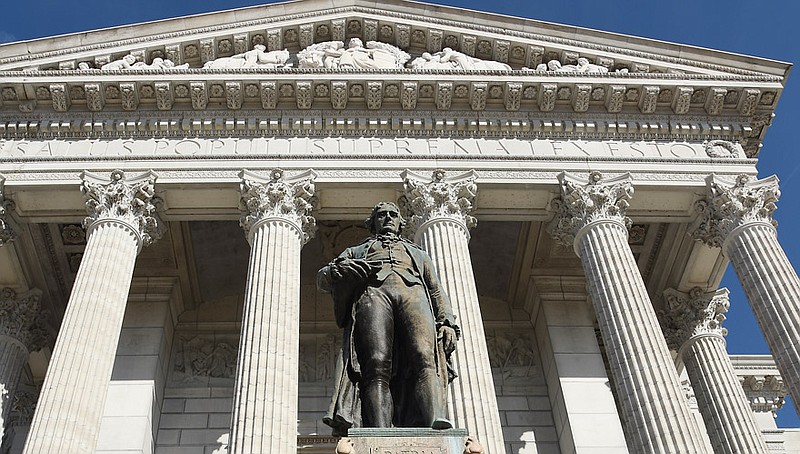Lawmakers and private citizens took the first step toward finding solutions to Missouri's aging infrastructure Wednesday during the first meeting of a transportation system task force.
State Rep. Kevin Corlew, chair of the 21st Century Missouri Transportation System Task Force, said members should keep an open mind and think outside the box over the next six months as they hear testimony from interest groups across the state. Several early solutions emerged during the meeting, including an increase in the fuel tax and using public-private partnerships.
Missouri Department of Transportation Director Patrick McKenna began the hearing with a presentation outlining the current state of the transportation system, highlighting the more than 2,000 bridges that need repair.
The department would need an additional $825 million annually to improve roads and bridges, reconstruct major interstates, and invest in projects that improve safety. It received nearly $2.5 billion in revenue in 2016, and two-thirds of that came from user fees such as fuel taxes, registration fees and motor vehicle sales taxes.
The department trimmed its operations in 2011, cutting 1,200 jobs, closing 124 maintenance facilities and consolidating the number of maintenance districts from 10 to seven. Those efforts have saved about $750 million.
While the public may think they are paying a lot of money into the highway system, McKenna said, the average driver pays about $30 per month in state and federal taxes and fees. The department received only $18 million from state general revenue in 2016.
"It's a common misconception that general taxation from income tax and property taxes is funding the statewide transportation network," McKenna said. "It's the user-fee structure, primarily gas tax, that's funding that."
State Sen. Bill Eigel pushed back against the idea of increasing funding, emphasizing that one solution could be to reallocate current funds the state already has.
"I have a huge hesitation to solve our problems by simply going back to our constituents and asking for more money anytime we perceive a shortfall," Eigel said. "The constituents that I've heard from in my district are furious that folks in elected office are simply trying to solve problems by asking for more money."
Eigel also questioned the viability of a fuel tax, saying that increasing fuel efficiency standards and a stagnant population would result in a low rate of return.
"I expect (efficiency) trends to continue," Eigel said. "That indicates that with a population in Missouri that isn't growing, the expectation is that, if anything, we may be selling less gallons of gas tomorrow than we are today."
While a fuel tax may be less viable, McKenna said, it is stable and mature, while other new technologies could require extra costs to implement.
"Those are really early in the process, and they're not ready really for broad distribution," McKenna said. "We need to, I think from a public policy perspective, harvest the mechanism we have for as long as we can."
Another option is a public-private partnership, a model in which a state agency enters a contract with a private company that would repair and construct roads.
One such partnership could come from Integrated Roadways. Board member DJ Good said Integrated Roadways has raised $4 billion that could be used to improve Interstate 70 into a six-lane highway between Independence and Wentzville.
"We need to rebuild I-70," Good said. "There are accidents on I-70 every week, and that needs to be addressed."
Ronald Leone, executive director of the Missouri Petroleum Marketers and Convenience Store Association, said using public-private partnerships for public infrastructure is a bad idea because it increases the overall cost of projects.
"I think whether you're conservative, whether you're liberal, you would agree that privatizing road and bridges and other infrastructure is a bad idea," Leone said. "It's not like funding a football stadium or an art gallery."
The committee will take a broad approach to finding solutions, holding monthly meetings that focus on different topics. The committee will meet again at 1 p.m. July 26 at Union Station in Kansas City and will look at transportation systems in other states.

